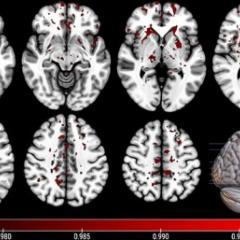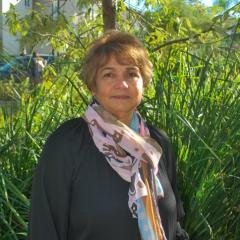Improving healthcare access and outcomes for Aboriginal and Torres Strait Islander peoples living in rural and remote regions of Australia is the focus of a new delivery model being developed by a freshly formed research partnership.
The University of Queensland, Goondir Health Services (GHS, an Aboriginal Community Controlled Health Organisation) and University of Southern Queensland (UniSQ) will co-develop The Innovative Digital Indigenous Primary Health Care Delivery Model (ID-INSPIRED).
The model will integrate Virtual Health Services, Point of Care Testing and digital technologies to provide health transformation within rural primary health care.
Associate Professor Srinivas Kondalsamy Chennakesavan, Project Lead and Head of Research at the UQ Rural Clinical School, said ID-INSPIRED's uniqueness lied in its co-design approach and the use of relevant digital technology.
“By eliminating the need for long-distance travel, this innovative solution will transform the provision of primary health care for those with multiple chronic health conditions,” Associate Professor Kondalsamy Chennakesavan said.
“While urban primary healthcare services increasingly use digital technology to streamline service delivery and optimise patient outcomes, the scope, uptake, and impact of digital healthcare service delivery in rural and remote communities is unknown.”
“Our study will assist in understanding the nuances of integrating digital health solutions in a way that is culturally appropriate for patients in rural and remote areas. With ID-INSPIRED, patients receive the care they need when they need it, without having to travel.”
Goondir Health Services CEO and co-lead investigator Mr Floyd Leedie emphasised the importance of this work for rural and remote Aboriginal and Torres Strait Islanders populations and the need for innovation while maintaining cultural appropriateness.
“Currently GHS provides primary health care and related health services to its clients across a 72,000 sq km service area. Offering holistic health care to patients spread over this vast geographic area is a challenge,” Mr Leedie said.
“To tackle this, Goondir has recently established a Virtual Health Service and provided patients with Remote Patient Monitoring devices.”
“This co-developed project will enable us to understand how the new model works, what its impact is for patients, and the benefit of the model not just for Goondir, but also for other Aboriginal Community Controlled Health Services across Australia.
“There is a lot of interest from other similar health services to expand and roll out this model of care. We can now generate the research evidence to support the ID-INSPIRED model,” he said.
University of Southern Queensland Health Economist and co-lead investigator Professor Khorshed Alam will evaluate the cost-effectiveness and sustainability of the ID-INSPIRED model.
“We need to make sure that the ID-INSPIRED model is cost-effective and sustainable into the future,” Professor Alam said.
“Co-development will ensure that communities feel ownership over this digital paradigm of health care and this is crucial to achieving economic returns and beneficial health outcomes.”
The partners involved in the ID-INSPIRED project are committed to developing a sustainable, cost-effective model of care that can be implemented by healthcare providers across rural and remote Australia.
The project will be closely monitored and evaluated to ensure that it delivers the best possible outcomes for Indigenous patients.
Funding for the development of ID-INSPIRED was recently awarded through the Medical Research Future Fund (MRFF).



